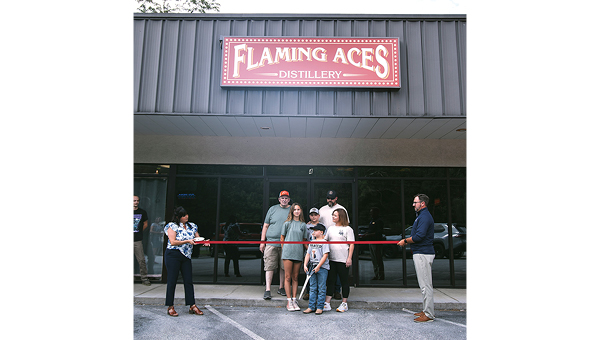Student loan forgiveness must target the needy first
Published 3:34 pm Friday, August 26, 2022
|
Getting your Trinity Audio player ready...
|
There are mixed feelings about the college loan forgiveness program announced this week by President Joe Biden. For those who are paying on college loans, it is a blessing, but for those who worked and paid their way through college it was not well-received news.
It’s long been said that there is no such thing as a free lunch. What that old adage means is that there is no way to get something that is valued or desirable without having to pay for it in some way.
Regardless, someone will pay the college loans.
The president announced Wednesday a plan to forgive student loans up to $10,000 — and sometimes up to $20,000, for primarily those who earn under $125,000 a year. While it may sound good, it’s a risky scheme and a step toward the Democratic dream of free college education for all, which is economically unsustainable in a country the size of the United States.
The president believes this wealth transfer will help low-income and middle-income families; however, economists believe it’s more a bailout for rich students more than the intended awardees. As Forbes points out, student loan forgiveness can only come at working taxpayer expense.
It also rewards risky behavior of students who promised to repay by taxing workers who either already repaid or are repaying their own or their children’s student loans or those who never went to college in the first place.
It also sends the wrong message to future students that they, too, may be able to take out large loans and not have to repay a portion of them.
And then, there’s the question of whether Biden has the authority to enact wide-scale student loan cancellation, which even House Speaker Nancy Pelosi has said he does not.
Some proponents of this plan are whining that those opposed are being selfish because when they went to college, the costs were much lower. That is a good point; however, students 20, 30 and 40 years ago still took out loans and still had to find a way to repay them on the salaries they made during those decades.
This loan forgiveness scheme doesn’t address the very real issue of high college costs, which have made college inaccessible for many. It would be better to focus on programs that lower college costs at the front end, such as programs in Tennessee that provides students the opportunity to take college classes before they even leave high school, all which can be accomplished at a much lower cost. And, Tennessee through its lottery provides students who attend community college the first two years of their college experience with free tuition. And, several in our own region have taken advantage by attending Northeast Technical Community College for two years before enrolling in a four-year college.
Federal funds directed to efforts like these would be a much better investment that provides more higher education opportunities to high school students and CareerTech students. That makes much more sense and provides a more successful path for college completion and repayment of loans.
Everyone knows that debt from student loans is raging out of control. Yet, many in Congress don’t want to further compound the problem by forgiving Ivy League tuition for elite big spenders while dinging those who chose to live within their means, or who made the decision to choose a cheaper state school to avoid going into debt, even if they were accepted at more expensive institutions.
Last year, the administration temporarily expanded eligibility for the Public Service Loan Forgiveness program until Oct. 31, 2022. So far, the Department of Education has identified more than 113,000 borrowers with about $6.8 billion in loans who are eligible for student debt cancellation due to the waiver.
Loan forgiveness sounds a lot like another government giveaway, especially to those who have worked hard to pay off their loans without assistance.
There is a middle ground here that respects all sides. Student loans should not be a life sentence, yet for many they have been. Some parents even find they can’t help their own children much because they’re still paying off student loans of their own.
No one can deny the value of a college diploma in today’s economy and job market for those who have the initiative and perseverance to pursue one. The government has an important role to play in helping those students to achieve their dreams, certainly without waste, fraud or abuse.
Where there has been abuse, or unreasonable actions on the part of predatory institutions, there should be forgiveness. Where there is public service on the part of the graduate, there should be forgiveness, too.
But those who chose to live large while pursuing an elite and perhaps impractical degree? The piper must be paid. Fairness demands no less.





